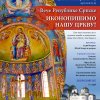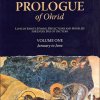ИКОНОПИШИМО НАШУ ЦРКВУ!
Циљ нашег окупљања јесте скупљање помоћи за иконописање Цркве Свете Петке у Сан Маркосу.
Програм:
- 17.30 Вечерње
- 18.00 Вечера и програм
У програму учествују:
- Епископ западноамерички Максим
- Обрад Кесић, представник Републике Српске у Вашингтону
Организациони одбор Вас позива и захваљује
ДОБРОДОШЛИ!
Улаз 25$
Контакт: Горан Стевановић [+1 (760) 274 5668], Петар Бановић [+1 (760) 715 3820]





